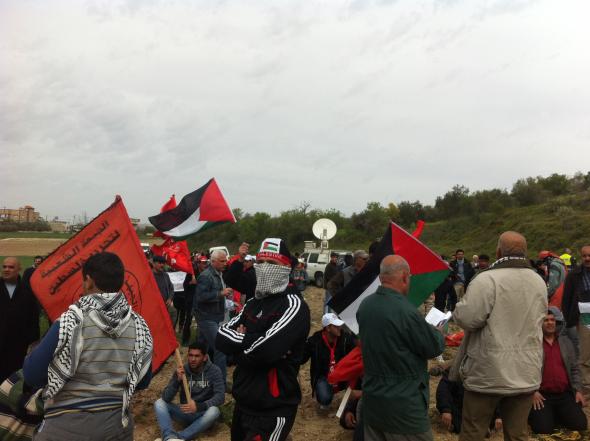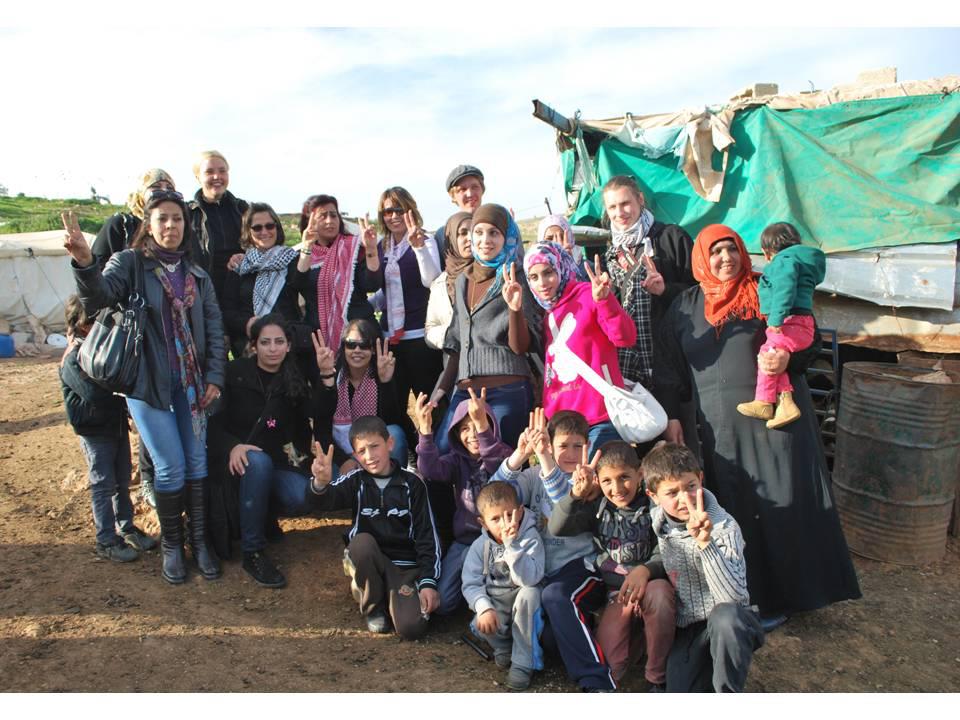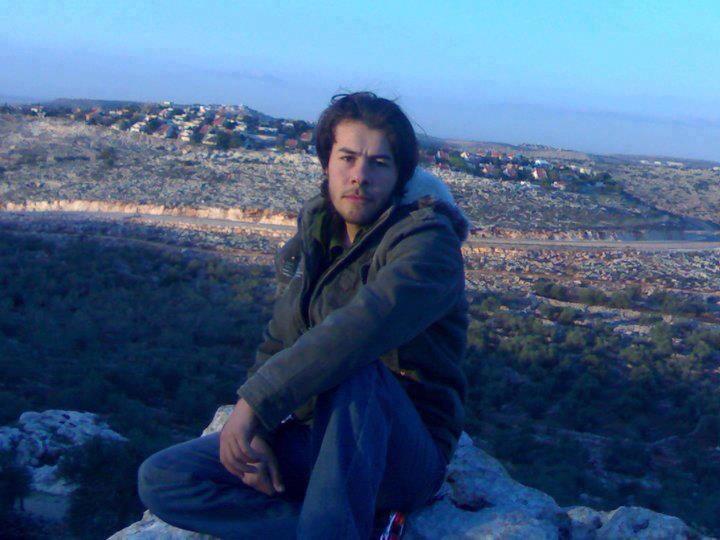Last Friday, March 8th, Stop the Wall organized a demonstration in cooperation with the local organizations in Sabastiya and in Salfit district to protest against the Shafi Shomron settlement. Shafi Shomron has been making life impossible to the villagers in innumerous aspects. The protesters were repressed by the occupation forces, who shot tear gas and sounds bombs at the crowd.
Shafi Shomron settlement has been built on Palestinian confiscated land and there are often cases of settlers’ violence against the villagers. Not only do the Palestinians suffer from this assaults and attacks, there is also the issue of the untreated waste water from the settlement that reaches the outskirts of the village, turning them into a space full with open sewage. The waste water affects more than 500 dunoms of Palestinian land belonging to Sabastiya and Der Sharaf villages, in Salfit. Sometimes it reaches Palestinian homes.
Sabastiya, located in northern West Bank, 18 km from Nablus city, is known as one of the most important archeological sites in Palestine for having historical heritage from different periods, especially the Roman era. Besides affecting the local tourism and hence a key source of livelihood, another danger that threatens local Palestinians with the spreading of the waste water is the pollution of the land, which turns agriculture unviable. Most of all, the waste water pollutes the underground water well that supplies the entire Nablus area.
This region is one of the key areas currently under attack from settlers and the occupation forces, as are South Hebron, Jordan Valley and the eastern part of Jerusalem, the so-called E1 expansion area.
Dumping waste water from the settlements onto neighboring Palestinian villages is in fact a common policy and it is happening all across the West Bank. This practice is one of the tools used for expanding and building settlements without having to invest into proper infrastructure, but most importantly this way the Israeli racist occupation ensures that the land around the settlements is polluted and impossible to use, isolating the Palestinian farmers and justifying further confiscation of their land. Not only that, forcing people to live amongst the settlers’ waste is a nasty form of harassment and humiliation of Palestinians, and another attempt to make them leave their homes, left to be taken by the settlers.
Another critical point about this practice is that the waste water policy used to expel people is in stark contrast with the Israeli attempt of promoting itself and its companies, like Mekorot, and other water management and agro-business companies, as leaders in the waste and water management and in the “green technology” business.
Before all this, the people of Sabastiya demand to save their land and harvest from destruction and pollution by the settlements and Stop the Wall calls for immediate measures of boycotts and sanctions to be taken against Israeli water and agro-business companies, telling the truth behind Israel’s “environmental” discourse.




